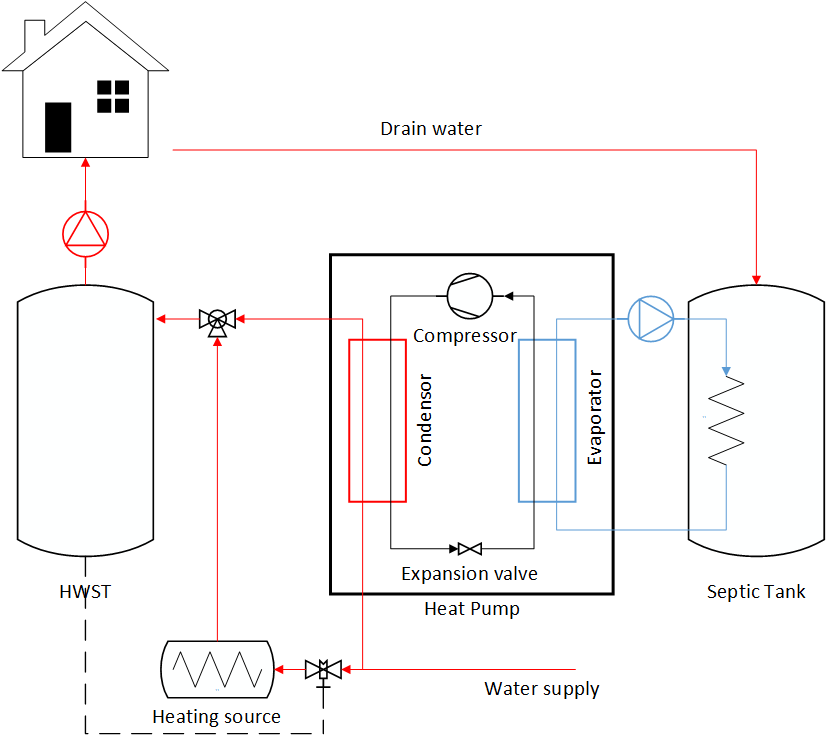Drain Water Heat Recovery in Domestic and Commercial Settings
Much of the energy consumed in heating water for domestic appliances and sanitation is wasted to the drainage system. This waste not only exists in the domestic sector, but also applies to many commercial buildings such as hotels, schools, hospitals or leisure centres. The energy efficiency of such processes can be improved through the adoption of Drain Water Heat Recovery systems, as hot waste water passes through a heat exchanger and the heat energy is transferred to incoming cold water streams or to a hot water storage system.
Our research group has been working on investigation of Drain Water Heat Recovery in commercial as well as residential sector. In terms of commercial buildings, the next step is to install a Drain Water Heat Recovery system at ABP Food Group. The aim of this installation is to recover heat from hot water used during meat processing and reduce overall energy consumption.
In residential settings, our previous study showed that there is a timescale mismatch between the heat supplied from the wastewater and space heating consumption. The heat supplied from the wastewater has to be stored using a thermal storage so that it can be used at a later time.
Schematic of Drain Water Heat Recovery system
To address this issue, our team has been working on the following idea - The building’s envelope has the capacity to store heat and act as a passive thermal storage. If the wastewater heat profile can be accurately predicted in advance then predictive control algorithms can be used to manage the heat supply and demand more efficiently.
Overall, the installation of this Drain Water Heat Recovery system is intended to increase the efficiency of heat consumption. In particular, with the combined application of predictive control algorithms can further augment the heat efficiency.
Determining the potential impact of DWHR technology
A desk study quantifies the potential for energy recovery using DWHR systems in domestic and commercial settings. This will enable a market assessment for DWHR systems, highlighting the potential for new business activity and growth using this technology.
Lab-scale development of DWHR units
A prototype DWHR system was developed to recover the heat in waste water from commercial kitchen drain water. The system looks to integrate a direct DWHR system with the grease trap. Because grease traps are mandatory in commercial kitchens, the prototype aims to provide financial and space savings through this integration.
Field demonstration of DWHR in the hospitality sector
Field-scale demonstration sites of the developed technology will be deployed in both Ireland and Wales to demonstrate the potential for energy recovery in commercial settings. The task comprises the design, installation and monitoring of the system. Energy savings and CO2 emissions reduction will be monitored. The site will be used for site visits and case study work in the smart specialisation cluster.




